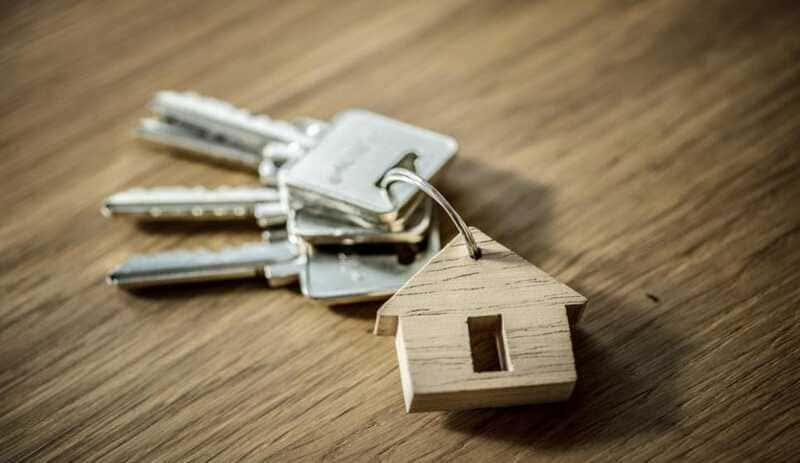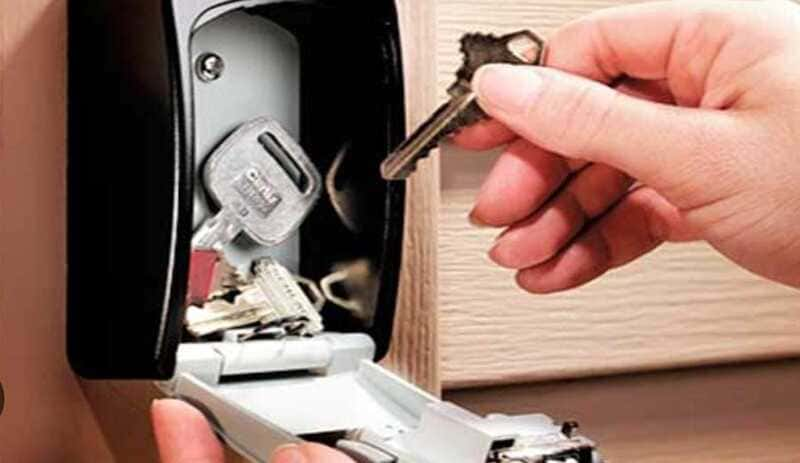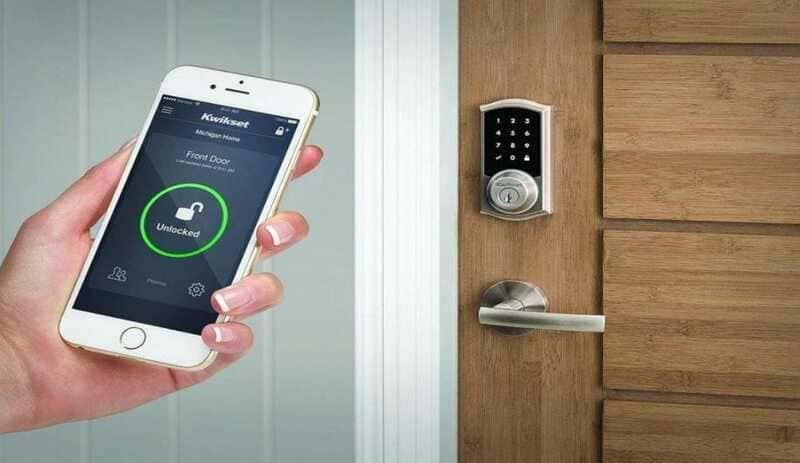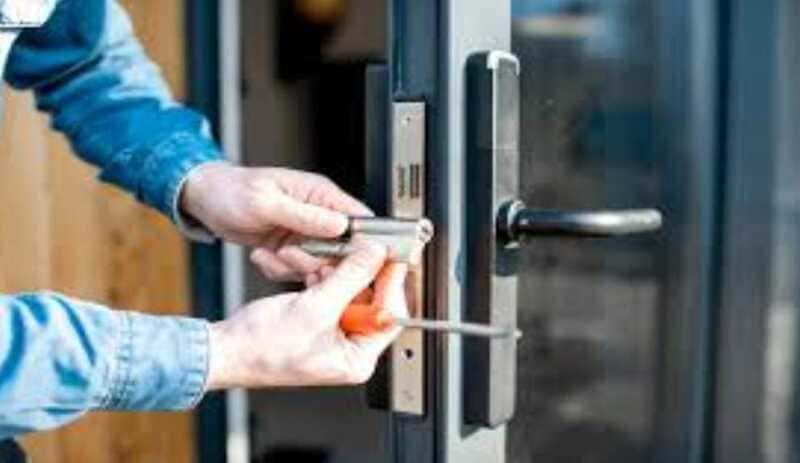In the hustle and bustle of everyday life, it’s easy to overlook the importance of the small object that secures our privacy, our refuge and our peace of mind: house keys. Often, we take this simple but vital security item for granted, not realizing that careless handling can put everything we value most at risk.
The safe handling of house keys is a critical aspect of maintaining the integrity of our home and protecting our loved ones. It is more than simply knowing where we have left them or sharing them with those we trust. It’s about being aware of the potential dangers that lurk when keys fall into the wrong hands and taking proactive steps to avoid unfortunate situations.

In this article, we will explore the relevance of safe house key management and how to implement safe house key practices in our home. In addition, we will address modern and technological solutions that complement traditional security, providing a comprehensive approach to protecting our homes.
Risks associated with mishandling keys.
The safe handling of house keys is a responsibility that we often overlook, until the risks associated with their mishandling become evident. In our daily routine, it is easy to become complacent and not pay enough attention to something as seemingly trivial as a key. However, losing them, leaving them in insecure places or sharing them indiscriminately can have devastating consequences for our security and peace of mind.
The loss of keys is a common fear that we sometimes underestimate. But what if someone finds them and takes advantage of the opportunity? A stranger with access to our keys could enter our home without our knowledge, putting the safety of our family and our belongings at risk. In addition, if lost keys are tagged with personal information, we run the risk of exposing ourselves to identity theft or other more serious crimes.
Leaving keys in insecure places can also be an invitation to thieves. Hiding a key under the flower pot or in the door frame may seem like an ingenious solution, but in reality, it is a common and predictable practice for criminals. Burglars know these common places, and it won’t take them long to find the key and gain access to the inside of the house.
Sharing keys indiscriminately is another risky behavior. While it is natural to trust family members or close friends, we should be cautious about granting access to our home. Sometimes even the people we trust the most can unintentionally put our security at risk. An unattended borrowed key can be copied or lost, opening the door to potential threats.
In today’s world, with increasing technology and sophistication in the field of security, key mishandling can no longer be ignored. Fortunately, there are modern solutions, such as smart locks and controlled access systems, that can significantly improve the security of our home. These devices offer the ability to grant temporary access to trusted individuals and keep a detailed record of entry and exit activities.
Methods to store keys safely.
The safe handling of house keys is a crucial task to ensure the protection of our home and the peace of mind of our family. Storing keys safely is a preventive measure that we should take seriously, as it will prevent unauthorized access and minimize the risks associated with the mishandling of this small but valuable security element.
A classic and effective option to store keys safely is to use a lockable lockbox. These devices are designed specifically for storing valuables, and some versions are specially designed to hold keys. Placing the box in a place that is discreet but easily accessible to family members will allow keys to be protected and available when needed.
Another alternative is to install a key safe recessed into a wall or floor. This option offers increased security and is virtually invisible to intruders. Only those with knowledge of its location will be able to access the keys locked inside.

On the market, we can also find electronic key storage devices with personalized access codes. These allow access to be granted to trusted individuals by means of unique and controllable passwords. Some models even have the ability to send real-time notifications when the key is used, providing a greater sense of control and security.
For those who prefer a more traditional option, a mechanical combination lock can be an effective solution. These locks use a numeric combination that must be entered to access the keys. It is important to make sure to keep the combination secret and change it periodically to increase security.
In addition to these options, we can also choose to store the keys in an unconventional location within our home. Avoiding obvious places visible to intruders, such as coat racks near the front door or inside the drawers of a piece of furniture, is a sensible practice. Instead, consider using a decorative object, such as a book with a hidden compartment or an inconspicuous ornament, to camouflage keys.
Sharing keys safely.
Safe Handling of House Keys refers not only to how we store our keys, but also how we share them with others in a safe and secure manner. Sharing keys with family, friends or maintenance services is a common practice, but we must be cautious and take certain precautions to ensure that access to our home is done responsibly and without compromising our security.
A key tip is to limit the number of people with access to our keys. It is tempting to give a copy of the keys to several people to facilitate entry in case of emergencies or everyday needs, but the more you share, the greater the risk of the keys ending up in inappropriate hands. Keeping a tight circle of trust and only sharing keys with people you really need to is a smart move to preserve home security.
When sharing keys with friends or family, it is always advisable to do it in person and not to leave hidden copies outside the house. Handing over keys in person allows us to ensure that they get into safe hands and that no one has the opportunity to copy them without our knowledge. In addition, if we need to provide temporary access to someone, we can opt to use a lock box with a lock or a smart lock that allows us to grant temporary access remotely.
If we hire maintenance services or a company to perform work in our home, we should verify their reputation and reliability before sharing our keys. It is advisable to read reviews, get references and make sure they are properly licensed and insured. We can also use secure key delivery services that facilitate the exchange and tracking of access.
In addition, for added protection, we can choose to use keys with advanced security systems, such as smart keys or high-tech locks. These solutions allow us to track and restrict access more effectively, providing greater control over who enters and leaves our home.
Key management while traveling.
Key management while traveling is a concern many of us face when leaving our home for extended periods of time. While embarking on far-flung adventures or simply being away for a few weeks, it is essential to take steps to ensure that our keys are protected and that our home remains safe and secure.
First, it is crucial to avoid leaving keys in obvious places near the front door or in places where intruders can easily find them. Hiding a key under the doormat or in a flower pot may seem convenient for access by friends or family, but it is also convenient for potential intruders. Instead, we should consider leaving the keys with a trusted person, such as a neighbor or close friend, who can help in an emergency and not attract the attention of potential burglars.
A more secure option is to use smart locks or controlled access systems. These devices allow us to grant temporary access to authorized individuals and track entrances and exits while we are away. Some smart locks even offer the option to receive real-time notifications when the key is used, giving us peace of mind and the ability to respond quickly to any suspicious activity.

Another important aspect is to make sure all spare keys are stored in a safe place and out of the reach of strangers. If we have neighbors or trusted friends helping us during our absence, we should make sure that they do not have access to our extra keys unless absolutely necessary.
In addition, it is a good idea to inform people we trust about our absence and provide them with emergency contact information. This includes telephone numbers where we can be reached, as well as contact numbers for local authorities or security services in case of any incident.
What to do in case of lost or stolen keys.
In case of loss or theft of keys, it is crucial to act quickly and decisively to protect our home and prevent possible risk situations. In these moments of uncertainty, it is essential to remain calm and follow some key steps to ensure the security of our space and the peace of mind of our family.
The first thing to do is to immediately notify the police about the loss or theft of the keys. Providing them with accurate details of what happened and any relevant information can help in their investigation and increase the chances of recovering the keys or identifying possible suspects.
Next, the locks need to be changed as soon as possible. If the keys were stolen and you have any reason to believe that the burglar may know the location of the house, this measure becomes even more urgent. Hiring a reputable locksmith to replace the locks on all the main doors will ensure that any unauthorized copying of the keys will be useless.
In situations where the keys have simply been lost and there is no suspicion of theft, it may be wise to change the locks or at least reprogram the smart locks if there are any. It is impossible to know if the lost keys were found by someone malicious, and taking this extra precaution will strengthen the security of our home.
In addition, we should consider whether we have additional keys somewhere outside the home, such as a locked safe deposit box or with a trusted family member. If so, it is also important to change those locks or recover those keys to avoid possible unauthorized access.
Finally, it is advisable to be alert to any suspicious activity in the area or in the immediate vicinity of the home in the days following the loss or theft of the keys. If we observe anything unusual or suspicious, we should report it again to the police and take additional measures to increase the security of our home.
Lock and key replacement.
The replacement of locks and keys is a crucial security measure that we must consider in certain situations to protect our home and maintain our family’s peace of mind. Knowing when it is necessary to change the locks and how to select a reliable locksmith are fundamental aspects to guarantee a correct installation and optimal security in our space.

First of all, there are several situations in which lock replacement is advisable. If we have lost the keys or they have been stolen, it is imperative to change the locks without delay to avoid possible unauthorized access to our home. The same applies if we have suffered a burglary or attempted burglary in which the locks have been forced or damaged.
It is also advisable to consider replacing locks if we have purchased a second-hand property or if someone who previously had access to the keys is no longer welcome in the home. It is difficult to know if unauthorized copies of keys have been made, so changing the locks provides an additional assurance of security.
Once we have decided to replace the locks, it is important to select a reputable locksmith to perform the work. Choosing a competent and honest professional will ensure that the locks are installed properly and that our privacy and security are respected.
We can start by asking friends, family or neighbors for recommendations. The personal experience of someone we trust can be a valuable guide in finding a reliable locksmith. In addition, it is a good idea to check the locksmith’s reputation online, read reviews and look for comments from other customers to get an idea of their quality of service.
It is essential to make sure that the locksmith is licensed and insured, as this will ensure that they are trained and qualified to perform the job professionally and safely. It is also advisable to request an estimate in advance and make sure there are no hidden costs or surprises at the end of the job.
When selecting a locksmith, it is important to trust your intuition and not feel pressured to make a hasty decision. Taking the time to carefully research and select a reputable locksmith will give us the security of knowing that our security systems are in good hands.
Tips to avoid carelessness.
Avoiding carelessness with our keys is essential to maintaining the security of our home and avoiding unnecessary risky situations. Although it may seem a simple task, we have all experienced at some point the frustration of losing our keys or leaving them in insecure places. However, there are practical recommendations that we can follow to reduce the possibility of these oversights and protect our keys effectively.
First, it is important to establish a designated place to keep our keys at home. Choosing a specific spot and always placing the keys there when we get home will help us maintain more effective control over them. A hook near the front door, a container in the entryway or a drawer in an easily accessible place may be suitable options.
Another recommendation is to always carry keys in a safe place when leaving the house. Using a key ring or wallet with specific compartments for keys will prevent them from being left in loose pockets or in places where they can easily fall out or be misplaced.
In addition, we can consider the option of duplicating our keys and having a backup copy in a safe place. Keeping a spare key with someone we trust or in a locked safe will provide us with an alternative in case we lose the original.
Maintaining a conscious approach and being attentive when using our keys is another important practice. Sometimes carelessness occurs simply because of inattention. Taking a moment to make sure our keys are always in place before leaving the house or locking the door can prevent unnecessary problems.
If we are prone to losing items, we can use additional accessories for our keys to help keep them visible and within reach. For example, an eye-catching or brightly colored key ring can be easier to identify and find in case they are misplaced.
Finally, maintaining a proactive attitude and establishing a routine to check our keys regularly will allow us to detect any problems in time. Some ideal times to do this are before leaving the house, when returning home, or before going to bed.

